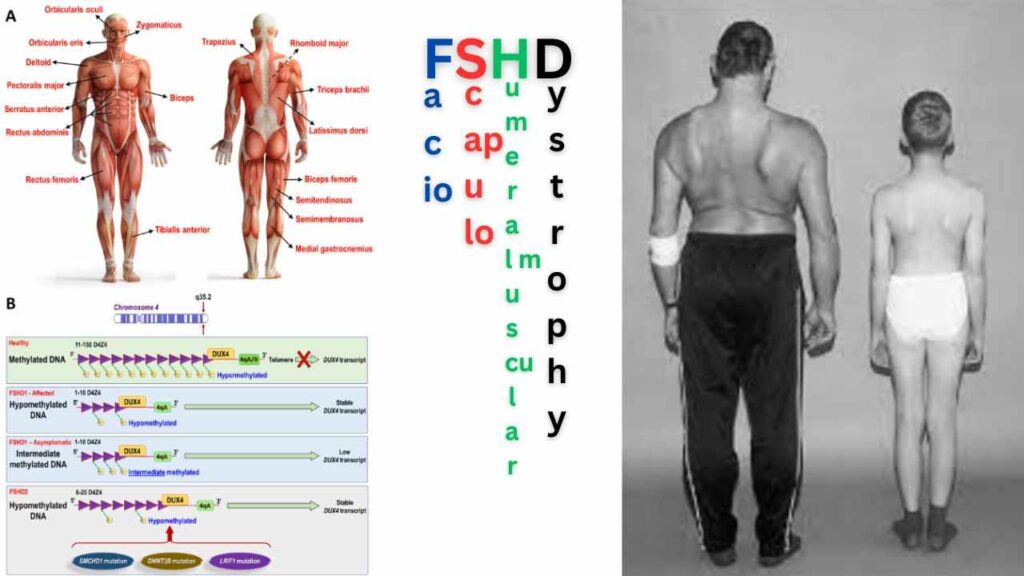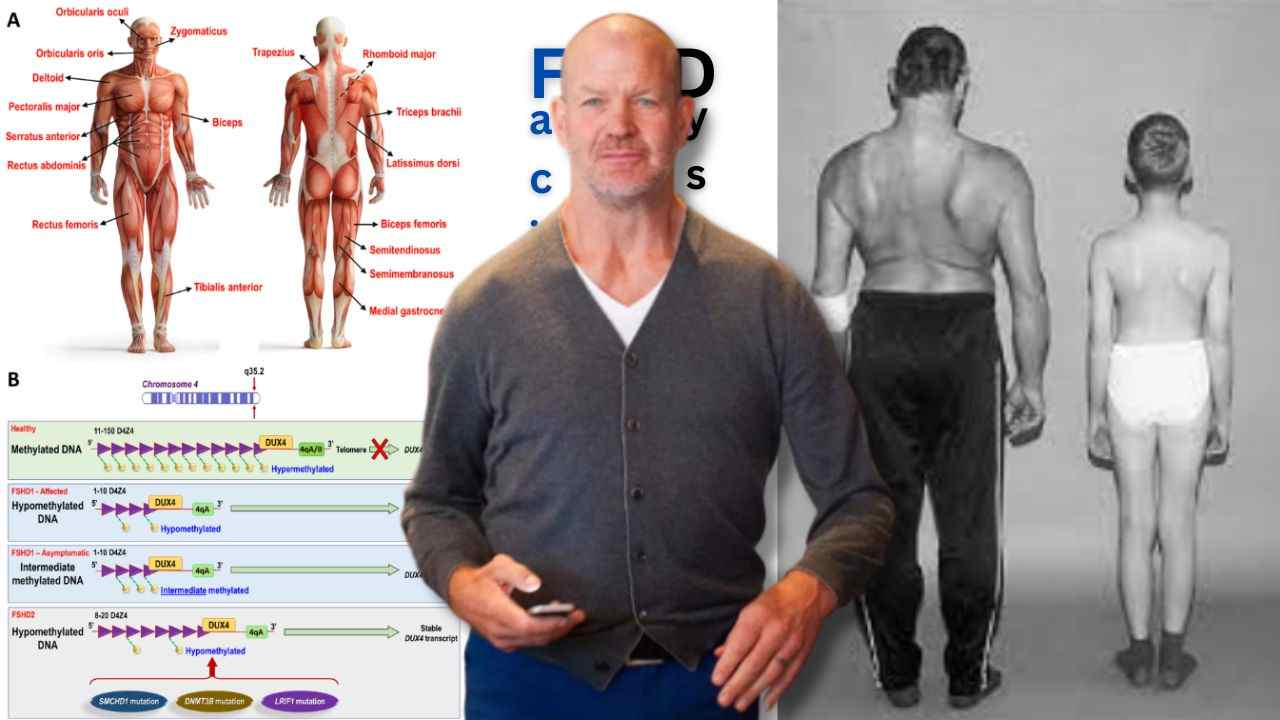Facioscapulohumeral Muscular Dystrophy (FSHD) is a relatively rare genetic neuromuscular disorder characterized by the progressive weakening of muscles. It primarily affects the muscles of the face (facio), shoulders (scapulo), and upper arms (humeral). This condition can lead to various degrees of disability, and while it may not be as well-known as some other neuromuscular diseases, it significantly impacts the lives of those diagnosed. In this article, we will explore the causes, symptoms, and potential treatments for FSHD.
Table of Contents
Causes of FSHD
FSHD is primarily caused by genetic mutations. It is an inherited disorder, and the genetic mutation responsible for FSHD is related to a region on chromosome 4. The specific genetic mutation associated with FSHD is the shortening of a region called D4Z4. While most people have a longer D4Z4 region, individuals with FSHD possess a shortened version, leading to the disease’s development.
In the majority of cases, FSHD is inherited from a parent who has the condition. FSHD follows an autosomal dominant pattern of inheritance, which means that each child of an affected parent has a 50% chance of inheriting the genetic mutation.

Symptoms of FSHD
Symptoms of FSHD typically appear in late adolescence or early adulthood, though they can manifest at any age. The severity of symptoms can vary greatly between individuals. Common signs and symptoms of FSHD include:
- Muscle Weakness: Muscle weakness is a hallmark of FSHD and often begins in the face and shoulders. Individuals may have difficulty raising their arms or smiling.
- Progressive Muscle Atrophy: Over time, the affected muscles become progressively weaker and may atrophy.
- Difficulty Swallowing and Speaking: In some cases, FSHD can affect the muscles involved in swallowing and speaking, leading to communication and eating difficulties.
- Foot Drop: Weakness in the lower extremities can result in foot drop, making it challenging to walk or maintain balance.
- Hearing Loss: Some individuals with FSHD may experience hearing loss due to muscle weakness affecting the stapedius muscle in the ear.
- Cardiac Issues: FSHD can sometimes lead to cardiac complications, although they are less common.
Diagnosis and Treatment
Diagnosing FSHD typically involves a combination of clinical evaluation, genetic testing, and muscle biopsies. Genetic testing is the most reliable method for confirming the presence of the genetic mutation associated with FSHD.
Currently, there is no cure for FSHD. However, various treatments and interventions aim to manage the condition’s symptoms and improve the patient’s quality of life. These may include:
- Physical Therapy: Physical therapy can help individuals with FSHD maintain muscle strength and mobility, enhancing their independence.
- Orthopedic Interventions: Braces, orthopedic devices, and surgical procedures may be recommended to address mobility issues or musculoskeletal deformities.
- Speech and Swallowing Therapy: For those with speech and swallowing difficulties, speech therapy can provide valuable assistance.
- Supportive Care: Treating related complications, such as hearing loss or cardiac issues, is essential for a comprehensive approach to FSHD management.
- Research and Clinical Trials: Ongoing research and clinical trials aim to develop potential treatments and interventions for FSHD. Participation in such trials may offer hope for individuals with this condition.
In conclusion, FSHD is a rare genetic muscular disorder characterized by progressive muscle weakness and atrophy. Although it is currently incurable, individuals with FSHD can benefit from various treatments and supportive care measures to manage their symptoms and improve their quality of life. Additionally, ongoing research holds the promise of future treatments that may provide hope for those affected by this challenging condition.
Frequently Asked Questions (FAQ) about Facioscapulohumeral Muscular Dystrophy (FSHD)
- What is FSHD, and how is it different from other muscular dystrophies? FSHD, or Facioscapulohumeral Muscular Dystrophy, is a genetic neuromuscular disorder that primarily affects the muscles of the face, shoulders, and upper arms. Unlike some other muscular dystrophies, FSHD typically presents with facial muscle weakness, making it distinct in its initial symptoms.
- How is FSHD inherited, and can it be passed from one generation to the next? FSHD follows an autosomal dominant pattern of inheritance. This means that if a parent has FSHD, there is a 50% chance of passing the genetic mutation on to each child. Inherited FSHD is the most common form, but sporadic cases can also occur due to de novo mutations.
- What are the early signs and symptoms of FSHD? The initial symptoms often include weakness in facial muscles, particularly difficulty smiling or raising the arms. Over time, the weakness progresses to other muscle groups, affecting the shoulders, upper arms, and potentially other areas of the body.
- Is there a cure for FSHD, and what treatments are available? Currently, there is no cure for FSHD. However, treatments and interventions focus on managing the symptoms and improving the patient’s quality of life. These may include physical therapy, orthopedic devices, speech therapy, and supportive care for related complications.
- What is the genetic test used to diagnose FSHD, and how reliable is it? The most common genetic test for FSHD is DNA analysis of the D4Z4 region on chromosome 4. This test is highly reliable and is considered the gold standard for FSHD diagnosis. In most cases, a genetic counselor can help individuals understand the results.
- Are there ongoing research and clinical trials for FSHD, and can patients participate? Yes, there is active research aimed at developing potential treatments and interventions for FSHD. Clinical trials are an essential part of this research. Individuals with FSHD can explore opportunities to participate in clinical trials through healthcare providers and research organizations to contribute to advancements in the field.
More from Wisdom Imbibe:

